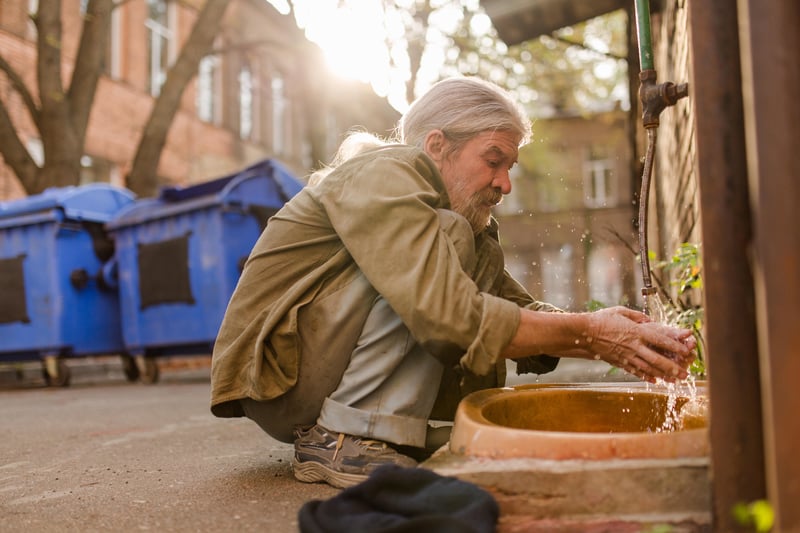Get Healthy!

- Cara Murez
- Posted October 16, 2023
Biden Administration Moves to Boost Health Care to the Homeless
A new rule allows health care providers to be reimbursed for treating homeless people wherever they are, rather than just in hospitals or clinics.
The U.S. Centers for Medicare & Medicaid Services (CMS) began allowing this change for both public and private insurers on Oct. 1, KFF Health News reported.
"The Biden-Harris administration has been focused on expanding access to health care across the country,"CMS spokesperson Sara Lonardo told KFF Health News, explaining that federal officials created the new reimbursement code at the request of street medicine providers who weren't being paid for their work.
Now doctors, nurses and other providers can provide reimbursed care in a "non-permanent location on the street or found environment."Most of the patients who will be helped by this are low-income, disabled and older people on Medicaid and Medicare, KFF Health News reported.
"It's a game-changer. Before, this was really all done on a volunteer basis,"said Valerie Arkoosh, secretary of Pennsylvania's Department of Human Services, which spearheaded a state-based billing change in July. "We are so excited. Instead of a doctor's office, routine medical treatments and preventive care can now be done wherever unhoused people are."
Other states had already taken this on, starting with California in 2021. Hawaii also does this, and street medicine teams already do work in big cities like Boston and Fort Worth, Texas.
This change will allow that to be more expansive.
"It's a bombshell,"said Dave Lettrich, executive director of the Pittsburgh-based nonprofit Bridge to the Mountains, which provides outreach services to street medicine teams in Pennsylvania. "Before, you could provide extensive primary care, and even some specialty care, under a bridge, but you couldn't bill for it."
Homelessness is skyrocketing, with 600,000 homeless people in the United States. The White House earlier this year announced plans to reduce that by 25% by 2025, KFF Health News reported.
Life expectancy of a homeless person is 48, compared to 76 in the overall population.
About 150 street medicine programs exist in the United States, including about 50 in California. That's double the number in that state compared to 2022, said Brett Feldman, director of street medicine at the University of Southern California's Keck School of Medicine.
Dramatically expanding care can interrupt the cycle of homelessness, the experts said, and reduces costly care, according to KFF Health News.
California alone could be saved 300,000 emergency room visits, Feldman projected.
"This is just the beginning, and it's a wake-up call because so many people are left out of health care,"he said.
More information
The Institute for Health Policy and Leadership has more on disparities in health care for the homeless.
SOURCE: KFF Health News







